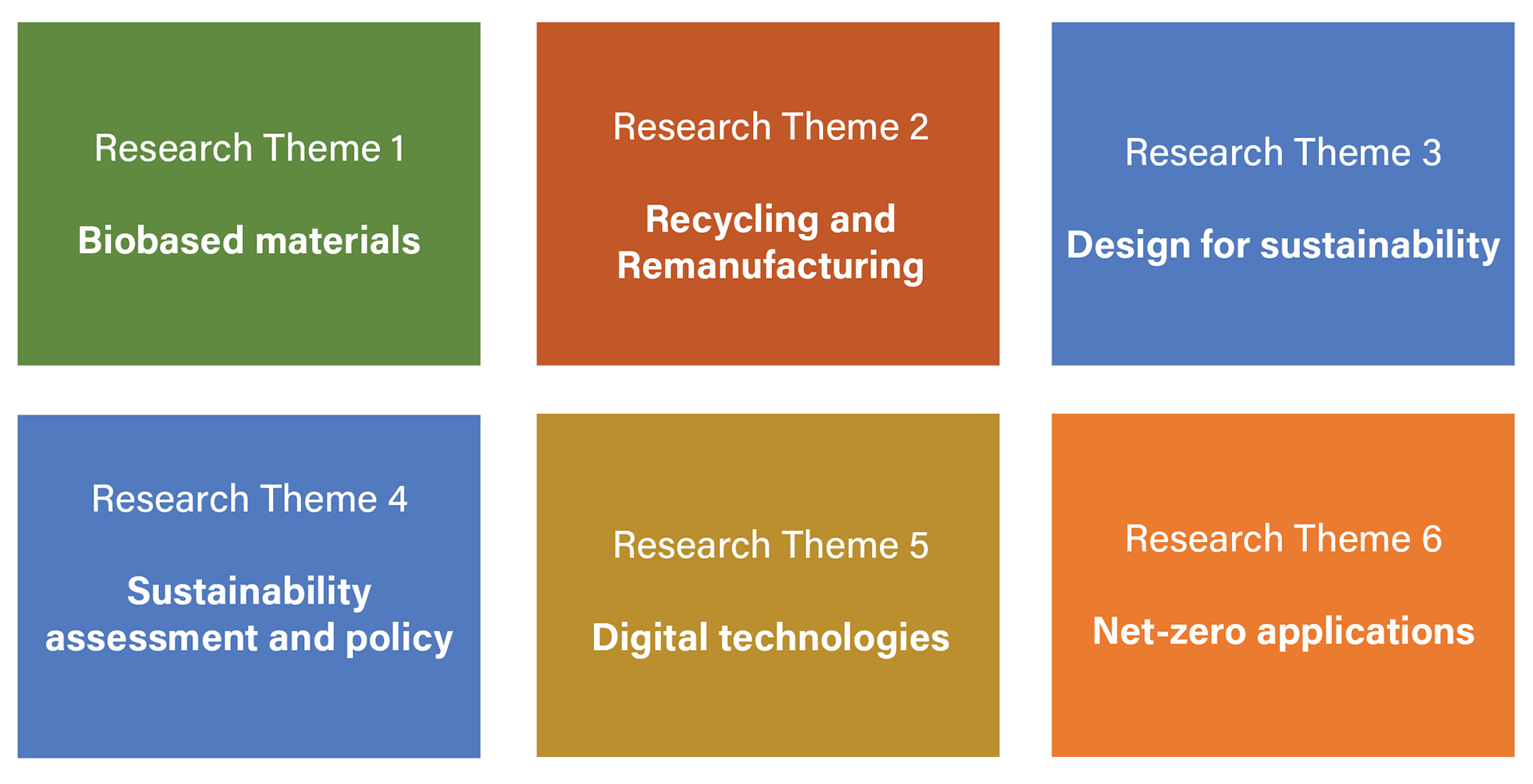Composite materials are vital to supporting sustainable technologies by combining aspects of materials to create the best material for its purpose. The Bristol Composites Institute tells us more about the importance of this work.
Fibre-reinforced polymer composites offer exceptional properties ideal for aerospace, automotive, and civil engineering applications. These include their high strength-to-weight ratio, corrosion resistance, durability, potential for complex designs and geometries, and tailored properties.
The importance of composite materials
Composite materials play a crucial role in promoting sustainability by mitigating environmental impacts throughout the lifecycle, from production to ultimate end-of-life disposal, potentially through a cascade of uses. One of the ways that composites have contributed to decreasing energy consumption and emissions during transportation is by reducing the overall weight of vehicles, aircraft, and infrastructure. The fact that composites also exhibit exceptional durability and corrosion resistance, extending the lifespan of products and reducing the need for frequent replacements, in turn, lowers resource consumption and waste generation.
Furthermore, composite manufacturing techniques, such as resin infusion and additive manufacturing, offer opportunities for resource efficiency by minimising material wastage and enabling complex geometries with reduced material usage. The widespread adoption of composite materials faces several sustainability challenges that must be addressed to maximise their environmental benefits.
These challenges include embracing a holistic approach that integrates material design, lean manufacturing, use phase optimisation, and end-of-life considerations. All these are important to tackle in order to realise their full potential while minimising their environmental footprint and ensuring long-term viability in various applications. The production of synthetic fibres such as glass, carbon, and para-aramids and the manufacturing of high-performance composites present significant environmental challenges.
Synthetic fibre production still primarily relies on the consumption of non-renewable petrochemicals and contributes to air and water pollution. Manufacturing of composites often involves energy-intensive processes, emitting greenhouse gases. Additionally, waste generation and disposal pose challenges due to non-biodegradable materials. Addressing these challenges requires implementing sustainable production methods, such as utilising recycled materials, reducing energy consumption, and developing low to zero-waste manufacturing techniques. Adopting circular economy principles and investing in research for greener alternatives are critical steps towards mitigating the environmental impact of these processes.
The Bristol Composites Institute’s work
The Bristol Composites Institute (BCI) is a University of Bristol Specialist Research Institute comprising a core team of 33 academic staff, 23 professional and technical services and 170+ research staff and postgraduate students. BCI was launched in 2017 with a mission to be a world-leading institute for composites research and education, addressing the overreaching grand challenges of sustainability and net zero, and is led by co-directors Professors Ole Thomsen and Stephen Hallett. BCI combines cutting-edge fundamental and applied science with strong industrial links for exploitation and technology transfer to deliver inherently sustainable composite solutions for the benefit of society and the global community.
Continued research and development in composite materials hold promise for further enhancing sustainability across a wide range of applications. The pivotal role that composite materials can play in achieving net zero goals cannot be emphasised enough. In wind energy, composite blades offer increased efficiency and durability, which are crucial for scaling renewable power generation.
The BCI’s achievements
Hydrogen storage vessels benefit from composites’ lightweight and corrosion-resistant properties, enabling safe and efficient hydrogen transport and storage. Lightweight composite structures in transport reduce fuel consumption and emissions, facilitating the transition to electric and hydrogen-powered vehicles. Through innovation in material science and engineering, composites can drive sustainability by optimising energy production, storage, and transportation systems, contributing significantly to the net zero transition.
One notable project that successfully integrated composite materials into a sustainable design and manufacturing process is the HiPerDiF/AFFTTM process for remanufacturing second-life high-performance composites with reclaimed discontinuous fibres. The production of reclaimed components is still in its infancy. Still, major strides have been made in retaining the strength and modulus of carbon fibres following recovery and high degrees of alignment during the remanufacturing process.
Another strategy explored by researchers at the BCI to minimise environmental impact and promote circularity in material usage is by enhancing the biodegradability of composite matrices and exploring bio-based alternatives. This encompasses not just poly(furfuryl alcohol) resins but also fibres, with alternative plant-based materials of dimensions both at the micron and nanoscale that are being adapted for high-performance composite applications. These biobased composite materials, derived from renewable resources like plant fibres and biopolymers, offer a sustainable alternative to traditional petroleum-based composites. Additionally, timber and its use in construction is a vital piece in the decarbonisation of a highly carbon-intensive industry.
Furthermore, utilising agricultural waste or fast-growing crops reduces our reliance on finite fossil fuels and can mitigate environmental impact. Moreover, the valorisation of this waste can be achieved to develop high-value products, including composite fibres spun from plant-derived biomass. Their production requires lower energy consumption and generates fewer greenhouse gas emissions. Additionally, biobased composites can be biodegradable or recyclable, minimising end-of-life waste. By promoting circular economy principles and reducing their carbon footprint, biobased composites contribute significantly to sustainable practices in industries such as construction, automotive, and packaging, fostering a more eco-friendly and resource-efficient future.
Beyond the materials development phase, optimising production techniques to minimise energy consumption and emissions using process modelling and digital tools (particularly for composites involving high-temperature curing and resin synthesis) are crucial strategies for reducing the carbon footprint of composite manufacturing. Collectively, the BCI’s efforts are focused on the challenge of developing inherently more sustainable, scalable engineering of composite materials and technologies for the 21st century without sacrificing performance.
Please note, this article will also appear in the 18th edition of our quarterly publication.





